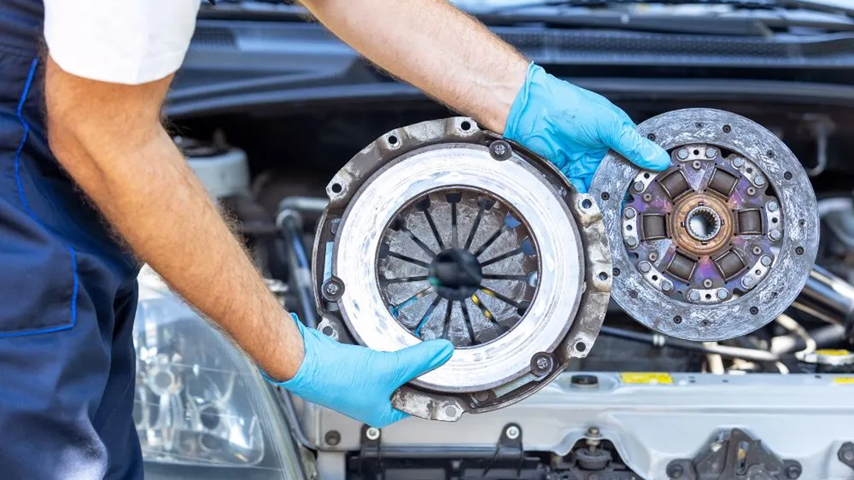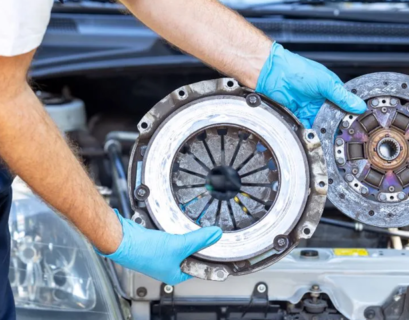Your car’s braking system is one of the most critical components ensuring your safety on the road. While it’s easy to delay regular maintenance or put off addressing brake issues, ignoring brake repairs can lead to more serious—and expensive—problems. Minor issues like worn brake pads or low brake fluid can quickly escalate into costly repairs if left unaddressed, impacting not only your budget but also your safety.
In this blog, we’ll explore the consequences of neglecting brake repairs and why prompt attention to your braking system can save you money and prevent dangerous situations.
The Role of Your Brakes in Vehicle Safety
Before diving into the dangers of neglecting brake repairs, it’s essential to understand the role that your brakes play in your car’s overall safety. The braking system is responsible for bringing your vehicle to a stop by creating friction between brake pads and rotors. When functioning correctly, your brakes help maintain control of your vehicle in all driving conditions—whether you’re navigating city streets, highways, or winding roads.
Any malfunction or deterioration of brake components can reduce stopping power, making it more difficult to control your vehicle and avoid accidents. Even a small delay in braking response time can have severe consequences, especially at high speeds or in emergency situations.
Common Brake Issues That Should Never Be Ignored
Many car owners ignore brake issues, often thinking that minor problems will resolve themselves or won’t cause significant harm. However, even seemingly small brake problems can lead to more serious malfunctions down the road. Here are some common brake issues that should be addressed immediately:
1. Worn Brake Pads
Brake pads are designed to wear out over time due to the constant friction they create when stopping your vehicle. Ignoring worn brake pads can cause the metal backing of the pads to grind against the brake rotors, leading to expensive rotor damage.
- Signs: Squealing or grinding noise when braking, a vibrating brake pedal, or increased stopping distances.
- Consequences: Damaged rotors, increased repair costs, and reduced braking efficiency.
2. Low Brake Fluid
Brake fluid is essential for transmitting the force from your foot on the brake pedal to the brake pads. Over time, brake fluid can leak or absorb moisture, reducing its effectiveness.
- Signs: A soft or spongy brake pedal, longer stopping distances, or a dashboard warning light.
- Consequences: Brake failure, air in brake lines, and costly repairs to the hydraulic system.
3. Warped Rotors
Brake rotors can become warped due to excessive heat buildup, especially during high-speed or downhill driving. Warped rotors can cause uneven brake pad wear and reduced braking performance.
- Signs: Vibrations when braking, uneven stopping power, or a pulsating brake pedal.
- Consequences: Damage to the entire braking system, increased wear on brake pads, and the need for rotor replacement.
4. Faulty Brake Calipers
Brake calipers press the brake pads against the rotors to create friction and stop the car. If calipers become stuck or malfunction, they can cause uneven braking and wear on the brake pads and rotors.
- Signs: Pulling to one side when braking, a grinding noise, or uneven brake pad wear.
- Consequences: Caliper failure, rotor damage, and the need for a full brake system replacement.
The Escalating Costs of Ignoring Brake Repairs
Delaying brake repairs can turn a relatively inexpensive fix into a costly repair bill. Let’s look at how a small problem can escalate into something much more expensive:
1. Worn Brake Pads Leading to Rotor Damage
Worn brake pads are one of the most common brake issues that drivers ignore. However, allowing brake pads to wear down to the point where the metal backing scrapes against the rotor can lead to significant damage. Replacing brake pads is a simple and affordable repair, but if rotors are damaged, they may need resurfacing or complete replacement, which is much more expensive.
2. Brake Fluid Leaks Leading to Hydraulic System Failure
Brake fluid leaks may seem like a minor issue, but ignoring them can lead to air entering the brake lines, which compromises your braking system’s ability to function. Repairing a simple brake fluid leak costs far less than repairing the entire hydraulic system, which may require replacing master cylinders, brake lines, or calipers.
3. Warped Rotors Leading to Brake System Overhaul
If you continue driving on warped rotors, you risk damaging other components in the braking system, such as the brake pads and calipers. This can lead to a full brake system overhaul, which is a significantly more costly repair than simply addressing the rotor issue early.
4. Complete Brake Failure Leading to Accidents
The most serious consequence of ignoring brake repairs is complete brake failure, which can result in an accident. Not only would this put your safety at risk, but it could also lead to expensive medical bills, legal costs, and insurance claims, on top of the repair costs for your car.
The Long-Term Effects on Your Vehicle
In addition to the immediate costs associated with brake repairs, neglecting your braking system can have long-term effects on your vehicle. Poor brake performance can cause uneven wear on tires, suspension components, and even your vehicle’s transmission. Over time, this can decrease your car’s overall performance and lead to more frequent maintenance needs.
Furthermore, ignoring brake repairs can also reduce your car’s resale value. A well-maintained vehicle is more attractive to buyers, while a car with a history of neglected maintenance, especially with critical components like the brakes, can be difficult to sell.
How Regular Brake Maintenance Can Save You Money
The best way to avoid costly brake repairs is to prioritize regular brake maintenance. Scheduling routine inspections and addressing minor issues before they escalate can save you both time and money in the long run. Here are a few maintenance tips to keep your brakes in top condition:
- Schedule Regular Brake Inspections: Most mechanics recommend having your brakes inspected at least once a year, or more frequently if you drive in stop-and-go traffic, tow heavy loads, or drive in mountainous areas.
- Replace Brake Pads and Fluid on Time: Brake pads should be replaced every 30,000 to 70,000 miles, depending on your driving habits and the type of brake pads used. Brake fluid should be flushed and replaced every two years to prevent moisture buildup and ensure optimal performance.
- Pay Attention to Warning Signs: If you notice any unusual noises, vibrations, or changes in brake performance, address the issue immediately. Early detection can prevent more extensive—and expensive—damage to your braking system.
- Choose High-Quality Brake Parts: When replacing brake components, invest in high-quality parts that offer better durability and performance. While cheap brake parts may save you money upfront, they tend to wear out faster and require more frequent repairs.
Conclusion
Ignoring brake repairs may seem like a way to save time or money, but it often leads to more expensive and dangerous consequences. Worn brake pads, low brake fluid, warped rotors, and faulty calipers can all escalate into major repair bills if left unchecked. More importantly, neglecting your brakes can put your safety—and the safety of others on the road—at risk.
By prioritizing regular maintenance, addressing issues early, and using high-quality parts, you can keep your brake system functioning optimally and avoid costly repairs down the line. Make brake repairs a priority, and your wallet—and your safety—will thank you. Read More












